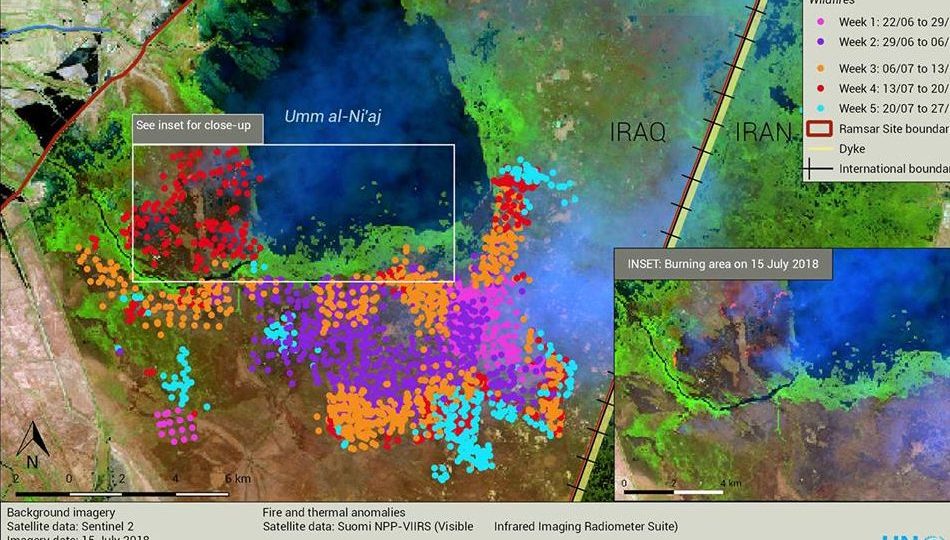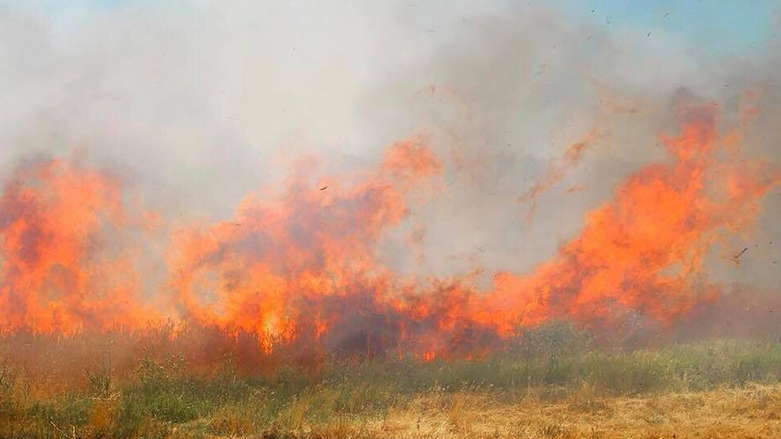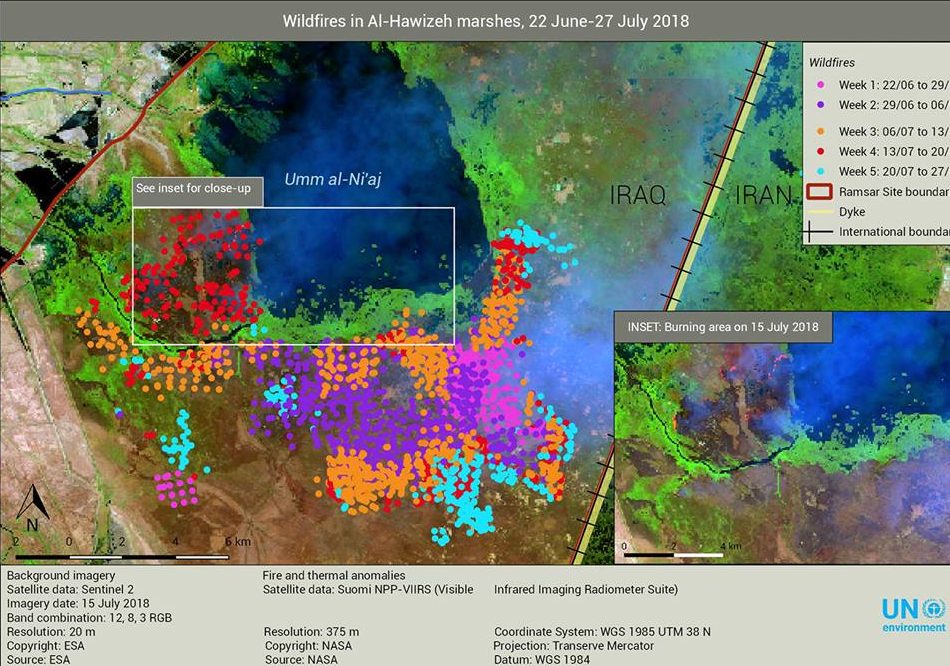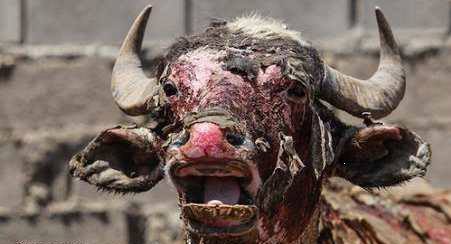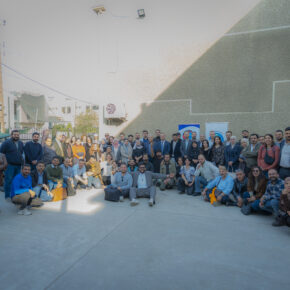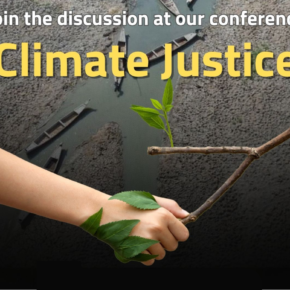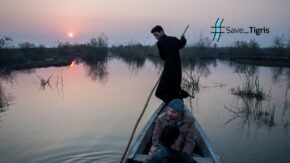What Was Not Destroyed by Drought is Now Burned by Fire
Humat Dijlah, 7/8/2018
As aresult of drought and water scarcity in the marshes, fire continues to spread over large areas of al-Huwaizah Marsh in Maisan Governorate in Southern Iraq, ravaging the natural area. Environmental activist Ahmed Saleh Neema, based in Maisan, explained the fire started in the pond of Um Alneaj of al-Hawizah Marsh between 6th and 7th of July. As itspread rapidly clouds of thick black smoke covering the area from were seen from kilometers away. Neema says fires are common as they are usually started by local inhabitants, who burn reeds and papyrus at the end of each year in a tradition known among the local population to revitalize the vegetation in the areaBut this time the fires broke out for different reasons: drought and water scarcity. Thisled to the death of hundreds of hectares of reed lands, and dry reed makes it easily susceptible to fires at high temperatures.
Al-Janabi: This Time the Fire is Out of Control!
“The fires in Huwaizah are an additional disaster on top of the water scarcity,” said Dr. Hassan al-Janabi, Minister of Water Resources in Iraq. “This time the fire is out of control!,” he added.
The Ministry of Water Resources released a statement on the issue: “Recently there have been fires in the densely reed areas in the northern part of al-Huwaizah Marsh, one of the Southern Iraq Marshes and one of the four natural sites within the World Heritage property [of the Ahwar] and the first site of the Ramsar Convention in Iraq”. The statement claimed the drought was the result of drought in large parts of the marshes due to severe water scarcity and low water flows to these wetlands, reaching exceptional minimum levels this year.The Ministry added: “The unprecedented increase in temperatures contributed to the spread of these fires. This has a negative impact on the health of the local population and biodiversity in the region, with significant air pollution caused by the smoke from the fires.”
The Ministry called on “international agencies and national and international organizations to provide support and relief to the people of those areas and to provide them with drinking water, food essentials and livestock feed to alleviate the harm and help them overcome this crisis,” demanding “cooperation between Iraq and Iran to increase the release of water from both sides to protect the site.” Huwaiza Marsh is located on the border, with two-thirds in Iraq and one-third in Iran. A decade ago the Iranians built an embankment on the border within the Marsh.
The Revolutionary Guard Intervenes on the Iranian Side
Days after it broke out, the firespread to Hoor al-Azim on the Iranian side of the Marsh, prompting the Iranian authorities to act immediately to quell it. Brigadier Farzadi Bauer referred to the Revolutionary Guard’s procedures to extinguish the reed fire in al-Hawizah Marsh, confirming that on July 18, following the instruction of the Air Force Commander of the Revolutionary Guards, two 171-mile helicopters equipped with firefighting equipment went to carry out the firefighting operation. According to Brigadier Bauer the helicopters of the Revolutionary Guard carried out more than 70 hours of flights to extinguish the fire in Hoor al-Azim, pointing out that the fire was very large and due to heavy smoke, access to the eye of the fire was fraught with difficulties. The main goal of their operation was to prevent another outbreak of fires in the Marshes.
Appeals to the Iraqi Government
From her side, Ms. Simra Al-Shabib, Director of the Marshlands Rehabilitation Center, welcomed the Iranian offer for cooperation to fightthe fire on the Iraqi side of Al-Huwaiza Marsh with the help of equipment of the Iranian Revolutionary Guard. Sheindicated that the Center had approached the Iraqi Ministry of Defense earlier to request assistance in order to mitigate the crisis, but the Ministry was unable to provide the necessary air force for this operation claiming the required type of aircraft is not available in Iraq.
Meanwhile, more than 28 days of fires have been reported to have destroyed hundreds of hectares of reed forests along the Marshes, as well as the displacement of birds, destruction of their nests and the deaths of other wild animals. While environmental activist Jassem al-Asadi confirmed that there were no human casualties as a result of these fires, and no cases of loss of livestock were recorded, according to the follow-up to the crisis.
According to al-Asadi, the main cause of the fire were the reed forests in the Marshes which were so dry they burned easily. Because of high temperature fires swept through the dry cane forests quickly. He stressed that the biggest crisis experienced by the Iraqi Marshes is the drought and low levels of water, bringing havoc in all its forms to the region.
Huma Dijlah Association calls on the Iraqi government and the local government in Maisan Governorate to take into consideration the extent of the environmental, natural and demographic damage caused by these fires in the Marshes. We call on the Iraqi government to take serious steps to resolve the drought crisis and to take steps to restore life to these natural areas and avoid further damage to the property.

